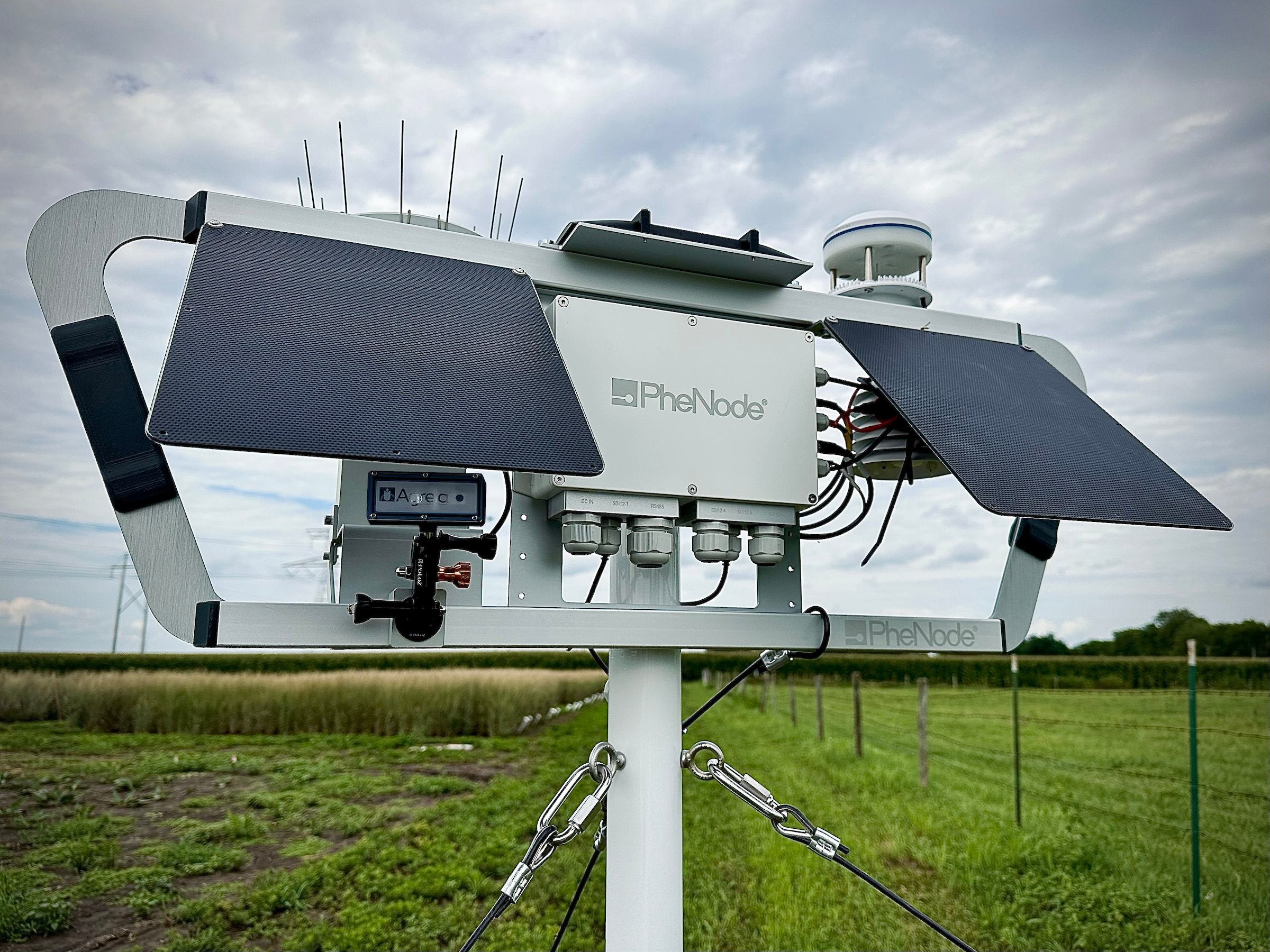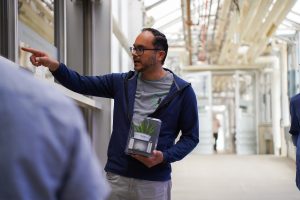
(AP News) Leading Transportation Partnership Deploys Agrela’s Vegetation Monitoring Technology on the Ray Highway – First for Interstate Roadside
November 16, 2023 /3BL/ – The Ray and the Georgia Department of Transportation (GDOT), in partnership with Agrela Ecosystems and the Donald Danforth Plant Science Center, announce the deployment of Agrela’s powerful plant and soil monitoring technology, PheNode®. A first-of-its-kind project launched on a highway roadside, PheNode® will be used to collect air and soil data and monitor wildflower meadow plots at three locations along the Ray C. Anderson Memorial Highway, an 18-mile stretch of Interstate 85 in West Georgia.
This project brings together leaders in sustainable transportation infrastructure and agricultural technology to validate, quantify and promote the natural solutions and value, called “natural capital,” that highway right of way (ROW) can contribute to communities and the environment. Georgia DOT, The Ray and the University of Georgia College of Environment and Design manage several experimental plots of wildflowers, grasses and other groundcover species along “The Ray Highway” at exits 6, 14 and the Georgia Visitor Information Center (VIC), which bloom seasonally to create an appealing display for motorists, but are leveraged for studying the ecosystem services that roadside meadows of native, perennial plants could deliver. This so-called “Landscape Lab” is a unique testing site designed to advance a mission of net-zero transportation as Zero Carbon and Zero Waste, and is home to pollinator gardens, bioswales and Kernza® perennial grain plots.
PheNode®will be used for a variety of monitoring functions, including data collection for all Landscape Lab plots. PheNode® is equipped with temperature, humidity, rainfall, wind, light, air quality and soil sensors. Coupled with wireless connectivity, Georgia DOT and The Ray can continuously monitor and collect data on environmental conditions within the plots, including temperature variations, humidity levels, light intensity and air quality or pollution levels, and soil conditions. PheNode® data can also be used to assess the overall health of the plots by alerting to environmental changes that can indicate potential stressors or disturbances in the ecosystem, allowing for early intervention or mitigation efforts. For projects implemented after PheNode® installation, the device will be able to provide robust data concerning the health and wellness of the area both before and after plantings. Georgia DOT and The Ray will be able to track improvements or issues from the start of additional projects, allowing researchers to obtain a greater understanding of the impact these projects have on the surrounding areas. READ MORE




